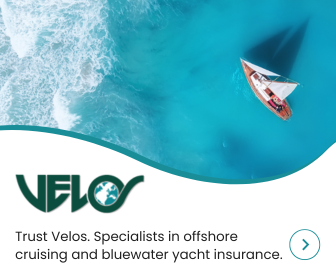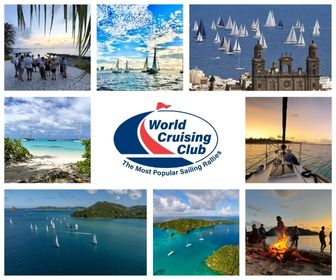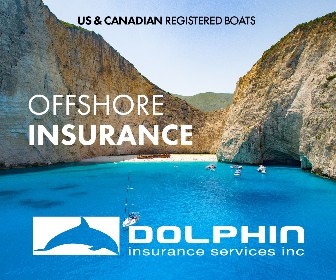Orca: Spanish Authorities Advise Yachts to Avoid High Risk Area in the Gulf of Cadiz
Spain’s Ministry of Transport and Sustainable Mobility has sent a warning to sailors planning to cross between the Gulf of Cadiz and the Strait of Gibraltar to avoid the area and, if there is no alternative, to stay as close as possible to the coast due to the presence of Orcas in the area.
Published 6 months ago, updated 3 months ago
Source: EuropeSur (in Spanish)
Campaign to Minimise Risks to People and Animals
The recommendation comes as part of an awareness-raising campaign that the Government will keep active throughout the summer on social networks and official pages, with navigational advice aimed at minimising risks for both people and animals themselves.
According to data collected by Salvamento Marítimo, the measures taken last year have begun to bear fruit: interactions between orcas and boats were reduced by 40% in 2024 compared to the previous season.
The months of greatest risk between May and August coincide with a greater presence of orcas in this part of the Atlantic. That is why the authorities insist on extreme caution and respecting a number of clear guidelines. The most important is to avoid, whenever possible, the maritime strip identified on the official map between the Gulf of Cadiz and the Strait, and opt for alternative routes glued to the coast, but always within the safety margins.


In case of sighting or interaction with orcas, the Ministry recommends not to stop the boat and sailing into less shallow waters near the coast. It is discouraged from approaching the bands of the ship, as the blows of these animals can cause sudden movements, injuries or even falls to the sea. It is also recalled that it is prohibited to use deterrent measures that may cause damage, discomfort or concern to cetaceans.
The official guide also advises taking photographs of the meeting – provided that it does not endanger the safety of the crew or the animals – and send them to the mail orcassasemar.es to facilitate the identification of specimens. All sightings or incidents must be notified immediately to the nearest Rescue Coordination Centre through channel 16 of the VHF, detailing the type of boat, length, registration, flag, location, duration of the encounter and any damage suffered.
First Reported Incident for the Year
One of the most recent episodes took place in April. Italian flagship Aspra was tackled by a family of orcas near the coast of Tarifa. For more than half an hour, the cetaceans insistently hit the rudder and the helm of the boat. The damage forced the crew to issue a distress call: the ship drifted in the middle of the Strait.
The recommendations disseminated by the Government are supported by the work of the follow-up commission composed of the Directorate-General of the Merchant Navy and the Directorate-General for Biodiversity, Forests and Desertification. In addition, they have been endorsed by an international workshop on orcas held in Madrid, promoted by the Scientific Committee of the International Whaling Commission and with the participation of experts from Spain, Portugal and Morocco.
All information, including downloadable maps with areas where navigation is not recommended, can be found on the websites of the Ministry of Transport, the Ministry for Ecological Transition and Maritime Rescue. It will also be distributed in Capitanías, Maritime Districts and Rescue Centers in the affected areas.
…………………………………
Related Information
- Spain, Cape Trafalgar: Report on Orca Interaction and Damage (May 2025)
- See Noonsite’s Orca and Yachts page for a history of Orca behaviour around the Atlantic Iberian Peninsula since 2020 and many useful links.
- Read the Cruising Association’s Orca Project Update
…………………………………
If you have found this information useful, become a paid member to enjoy unlimited use of Noonsite plus many other perks. Your membership fees really help our small, dedicated team keep country information up-to-date in support of cruisers worldwide. Find out more about Noonsite Membership levels and benefits here.
Subscribe to our FREE monthly newsletter: https://www.noonsite.com/newsletter/
Related to following destinations: Algeciras, Barbate, Cadiz, Ceuta, Chipiona, Gibraltar, Gibraltar Port, Huelva, Isla Canela, Isla Cristina, Mazagon, Melilla, River Guandiana - Ayamonte, River Guandiana - Sanlucar, Rota (Spain), Sevilla, South West Coast (Spain), Spain, Spanish North Africa, Tarifa
Related to the following Cruising Resources: Orcas and Yachts








Website with sightings & interactions updated soon after they happen
https://www.orcas.pt/